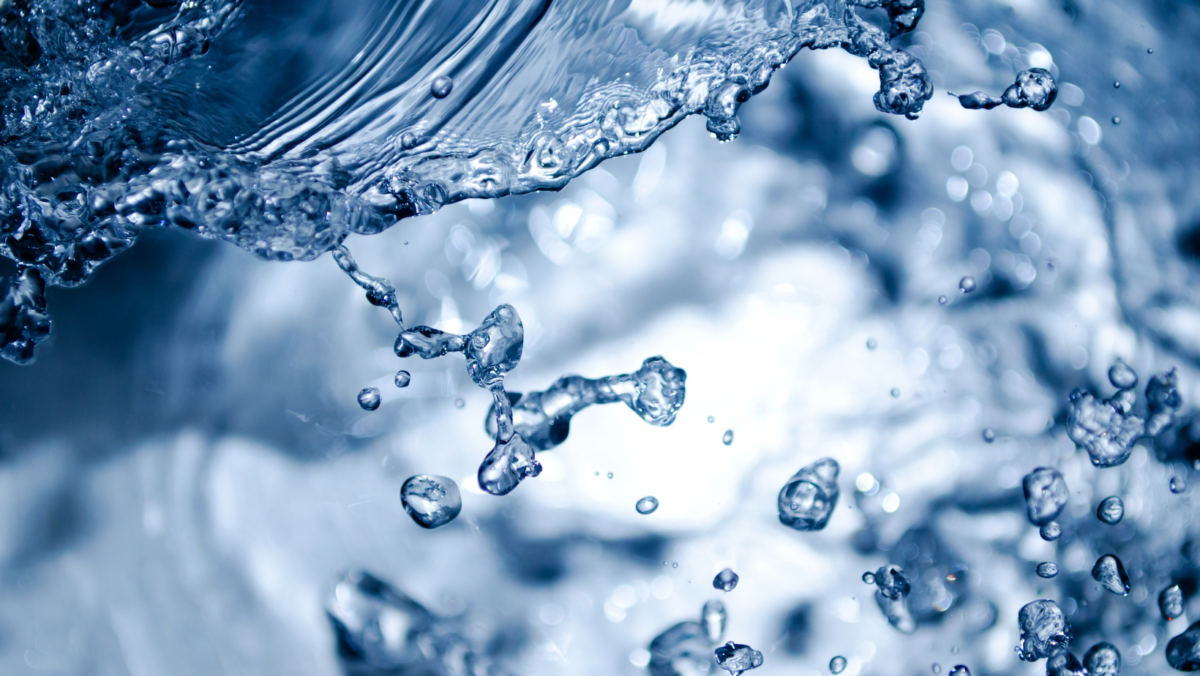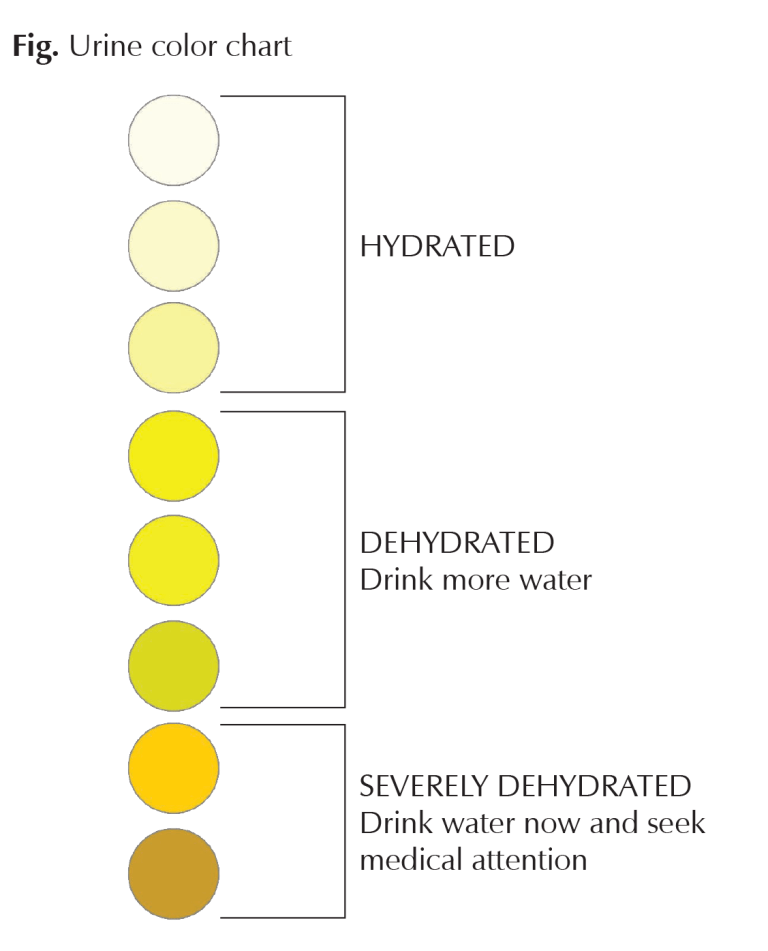
Why should you hydrate?
We all hear that you need to hydrate frequently. But, did you know that your body is mostly water? In fact, 60% of your body consists of water. Two-thirds of this water is intracellular (contained within your cells) and 1/3 extracellular (existing outside your cells). Extracellular fluids include your blood plasma, lymph (the fluid from the spaces between body tissues that collects in your lymphatic vessels), and various bodily fluids such as your cerebrospinal (within the cavities of your brain and spine) and pleural (around the membranes of your lungs) fluids.
Without plenty of water, your body cannot operate efficiently. Just to maintain proper functions, such as regulating your temperature, carrying out metabolic reactions, delivering vitamins and minerals to your cells, transporting nutrients, and eliminating waste, your body requires ½ to 1 fluid ounce (fl oz) of water per pound (lb) per day. Exactly how much water you need therefore depends on your overall weight and other factors. If, for instance, you weigh 150 lbs, this means you need approximately 2.5 quarts of water per day.
Following an exercise routine or playing sports will cause you to sweat more and to burn more fuel. This is because sweating is your body’s primary mechanism for cooling itself off during exercise. When sweat breaks out on your skin it transforms and evaporates, carrying heat away from the body. Sweating also helps you maintain constant energy levels while working out. All of this means you will need additional fluids to hydrate yourself and maintain a healthy water balance. It is therefore important to drink plenty of water before, during, and after exercise.
Recommendations on how to hydrate effectively
The National Athletic Trainers’ Association recommends that you drink 17 to 20 fl oz of water 2 to 3 hours before an athletic event and 7 to 10 fl oz every 10 to 20 minutes during an event. However, due to such factors as your height and weight, fitness level, hydration status, and clothing, as well as the humidity, temperature, and the type of activity involved, you may perspire more and therefore need to hydrate more.
Following an event or competition, you should aim to restore your body to its fully hydrated state, but how do you know how much liquid to consume? It is standard procedure in some sports, particularly football, to record an athlete’s weight before and after practice because weight loss from perspiration should not exceed more than 2% of total body weight for any single training session. This means that if you are a 150-pound athlete you should not lose more than 3 lbs in 1 exercise session. As a rule, you will need to consume 16 to 20 fl oz of water per pound of body weight lost in order to rehydrate. Thus if you lose 5 lbs, you will need to drink at least 80 fl oz of water. While this may sound like a lot of liquid, keep in mind that a typical soda bottle holds 20 fl oz.
Sports drinks or water?
Nutrients such as sodium, calcium, and potassium—also known as electrolytes—play a key role in hydration. They transport water throughout your body and are essential for proper water retention as well as muscle contraction. As you sweat, you lose electrolytes along with water. If as an athlete, you eat proper meals before and after a sporting event, water is your best option for fluid replacement. If, on the other hand, you are in a competition environment where you may be sweating excessively and not have the opportunity to eat or hydrate right away, a sports carbohydrate beverage (such as Gatorade™ or Powerade™) may be preferable for replenishing water and lost electrolytes quickly.
Be aware, however, that you should always be drinking water in addition if you are having a sports drink – they are not a replacement for water. Drinking them in excess causes an upset stomach and can raise sodium levels. It is also important to note that while water has 0 calories, sports drinks may pack over 90 calories per serving—an important consideration if you are exercising for weight loss.
Dehydration
It is easy to become slightly dehydrated while exercising because your body cannot replenish the amount of water lost through sweat and evaporation quickly enough. As discussed, a loss of more than 2% of your total body weight indicates that you are moderately to severely dehydrated. At the severe level, your body can no longer carry out proper cardiovascular and thermoregulatory responses. The amount of blood that your heart can pump is also significantly reduced which, in turn, means that there is less oxygen moving through your body. Moreover, with less water available for sweating, less heat is dissipated; consequently, your body temperature rises, putting you at risk for heat-related illnesses.
Furthermore, dehydration impedes athletic performance. For instance, it can decrease the duration for which you can exercise by over 50%. You should therefore begin every exercise session completely hydrated. If you exercise on consecutive days or multiple times a day, you are at increased risk of dehydration.
How do you know you are dehydrated?
Thirst is a message from your brain that you are becoming dehydrated. Another symptom of dehydration is a pale or white tongue. If dehydration progresses, you may also experience excessive thirst, dry-mouth, fatigue, dizziness, headache, chills, cramps, nausea, and vomiting. Additionally, you should be aware that dehydration is a contributing risk factor for heat-related illnesses such as heat cramps, heat exhaustion, and heat stroke.
Skin turgor test
A simple test you can perform yourself to determine whether or not you are dehydrated is the skin turgor test. Just pinch the skin on the back of your hand. If your skin is well-hydrated, the pinched area will return to its normal position right away. If your skin is dehydrated, it will remain elevated, taking longer to return to normal.
The color of urine

Another way to gauge whether you are properly hydrated is to note the color of your urine (Fig.). Normal urine is a light yellow, similar to the color of lemonade. If your urine is darker in color, it indicates that you are dehydrated. Noting the color of your urine is also a good way to check if you are fully rehydrated. Overall, it should take no longer than 6 hours for you to rehydrate after an event.
Pay attention and carry a water bottle
By taking precautions and cultivating good hydration habits, you can easily avoid dehydration and its consequences. It is also important to know your own body. Pay attention to the signs and symptoms of dehydration; you may need to take a break to rehydrate. Additionally, keep in mind the amounts of water you should optimally drink before, during, and after your athletic events. Finally, try to practice good hydration habits, such as carrying a refillable water bottle with you at all times. You’ll drink more water than you think when it’s constantly at your disposal.
Author: Brittany Partlow, LAT, ATC, and Alan Ray, MS, LAT, ATC | Columbus, Georgia
Reprinted with permission from the Hughston Health Alert, Volume 28, Number 3, Summer 2016.
Last edited on October 18, 2021